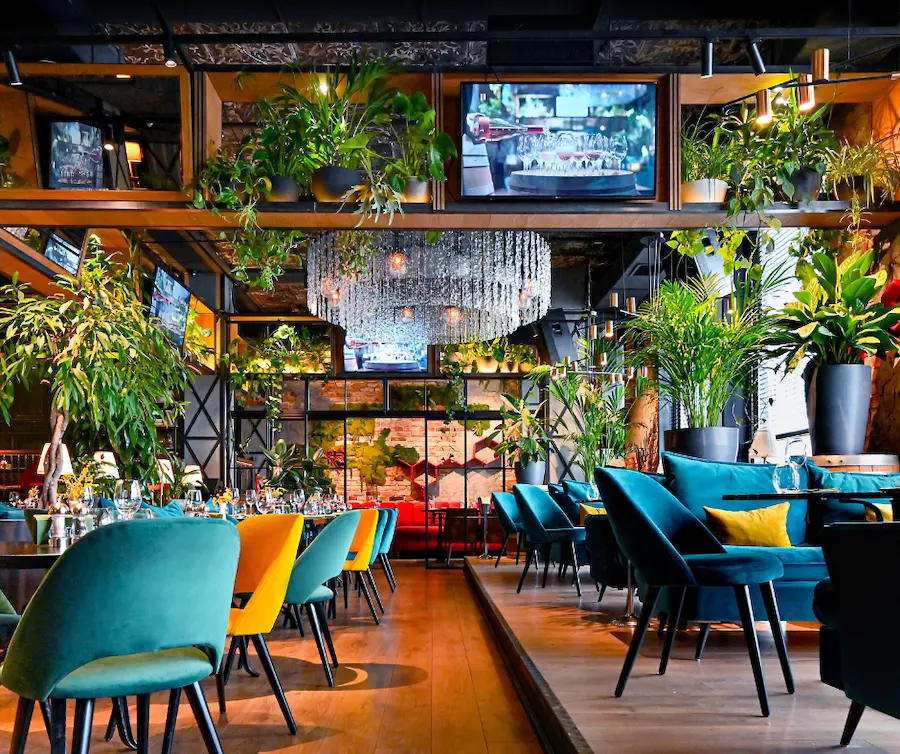In today’s world, your business is not just a business. Your hotel is not just that; your restaurant is not just a restaurant. All of these are brands in themselves. There are two aspects of creating an identity that is distinctive and memorable. These are branding and storytelling. Let us dive into what each of these is and what they mean for a food business.
Branding Your Way Towards Sensation
You must have seen certain food brands being recognisable even through simple elements like their colours or logo. Think red and yellow or certain logos and taglines. Think Coca Cola or Haldirams. Branding is an incredibly important aspect of any business today. As an owner of a food business, you must remember that your brand is how people perceive you. People include potential customers, employees, industry people, competitors, and other industries.

Why Strong Branding Is Key?
- Makes it memorable: You want people to recognise your business and remember it.
- Attracts target audience: Your brand’s USP will differentiate your business from others providing similar products. This will create a sense of belonging and loyalty among the customers if they relate to your brand.
- Drives revenue: Branding does not just make your business unique but also invites new customers.
- Employee retention: A business which has specific values and purposes retains more employees as they have a sense of alignment within the team to achieve similar goals.
Elements of Branding
- Visual Branding: This includes logos, colour palettes, fonts, staff uniforms, and design elements like interiors, furniture, textiles, floor plan, etc.
- Written Branding: This includes the voice of your brand, the linguistics that creates your brand’s personality, brand slogans/ unique sales propositions, the values your brand stands for, the vision and mission of your brand, etc.
- Hybrid Branding: This includes other marketing elements of your brand, such as the menu, website, social media, and other signs.
It is necessary to plan and execute these branding strategies well and, more so be consistent with them throughout.

Storytelling for Business
What does one understand by storytelling? Is it just flipping through a book of fairytales as we did when we were young or movies we watch? What does it have to do with business? Well, believe it or not, a lot!
Storytelling is a powerful tool when it comes to businesses. As humans, we have been using stories to connect and come together for centuries. We feel more connected to a person if they tell us a story about themself if they let us peek through a small window into their life. The same applies to brands. When we know more about the inception of a business, we feel more in touch with it, and more inclined towards it. For example Amul. We have all heard about how the dairy brand came to be through a beautiful women-led cooperative. Or some of us may even have seen it all happen fictionalised in the 1976 movie, Manthan. Regardless, we stay loyal to the brand when faced with alternatives, right? That’s the power of storytelling. It drives brand loyalty and forges a sense of community.
Some Tips on Storytelling for Your Business
- Narrate an authentic origin story: People who find something about the brand’s identity speak to them and tend to become loyal to it. Aspects like procurement from local farms, handpicked and handcrafted by artisans, or women-led businesses drive more customers in today’s consumer climate.
- Explore your business’s values and missions: Knowing what the business holds to value and what it aims to achieve may also create a good public image.
- Provenance: Customers who eat out do not want to feel like they are losing out on authenticity or health by doing so. Highlighting where your ingredients come from and how they are sourced is a good practice to develop goodwill amongst your consumers.
- Culture and heritage: Remember that stories come from real people with real backgrounds and emphasising that in your recipes and representation will only authenticate your brand’s story further.
- Adapting new rituals and education: Informing your customers about unique elements and ways your food is prepared and consumed will not only allow them to have a new experience but also widen their knowledge about certain cultures and cuisines.
Several themes work for food brands in today’s market like sustainability, provenance, unique experiences, empowerment, etc. Choose the ones that feel authentic to your brand. And while creating your origin concept, make sure, to be honest, consistent, relevant, clear, and emotional.
In the competitive food service industry, crafting a compelling brand story, defining a unique identity, creating a visually captivating brand image, showcasing ethical values, and establishing authentic connections are all pivotal to success. By weaving these elements together, your food service facility can create a powerful brand that attracts customers as well as forges lasting emotional connections and loyalty.
HPG Consulting as a commercial kitchen consultant stands as your culinary conductor, orchestrating success through strategic planning and expert execution. With over two decades of experience, we’re not just consultants; we’re your partners in culinary innovation. Whether you’re navigating new cuisines, perfecting delivery logistics, or crafting loyalty symphonies, we’re here to guide you.